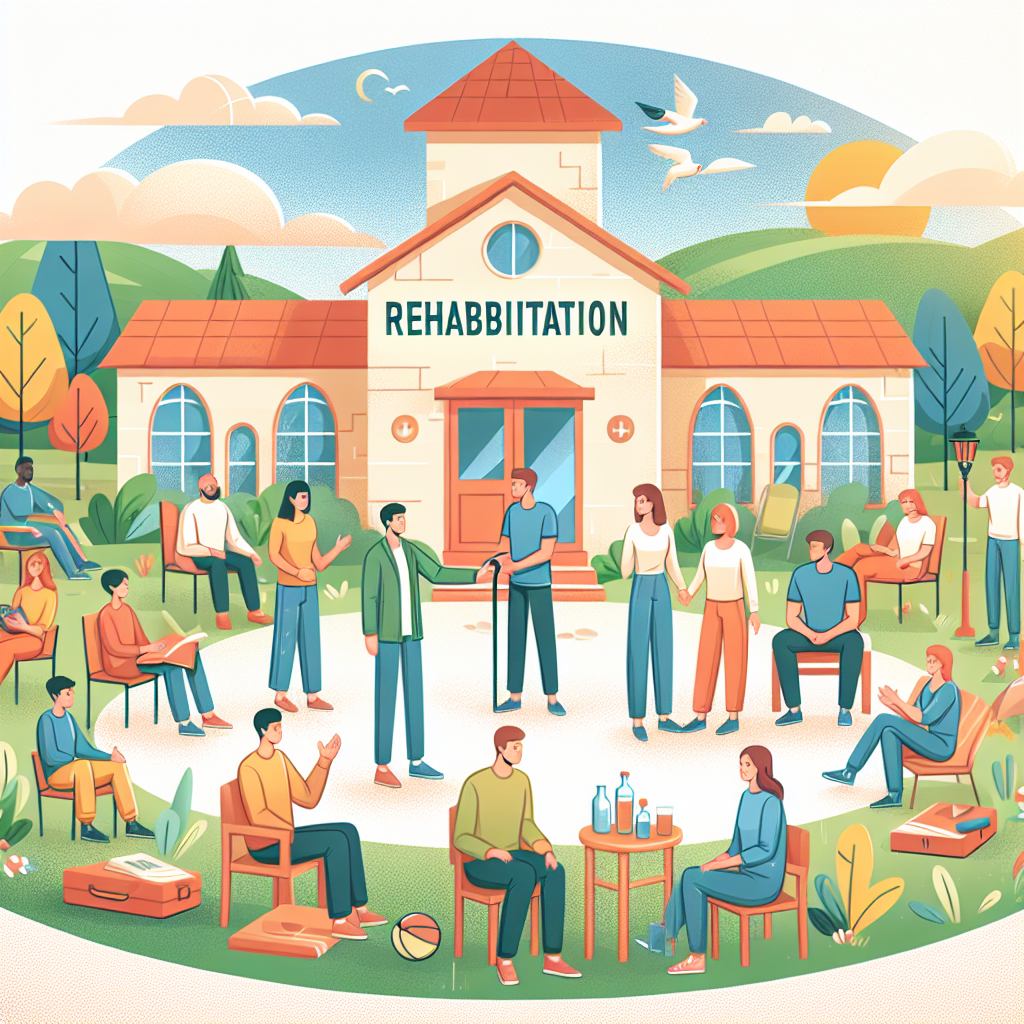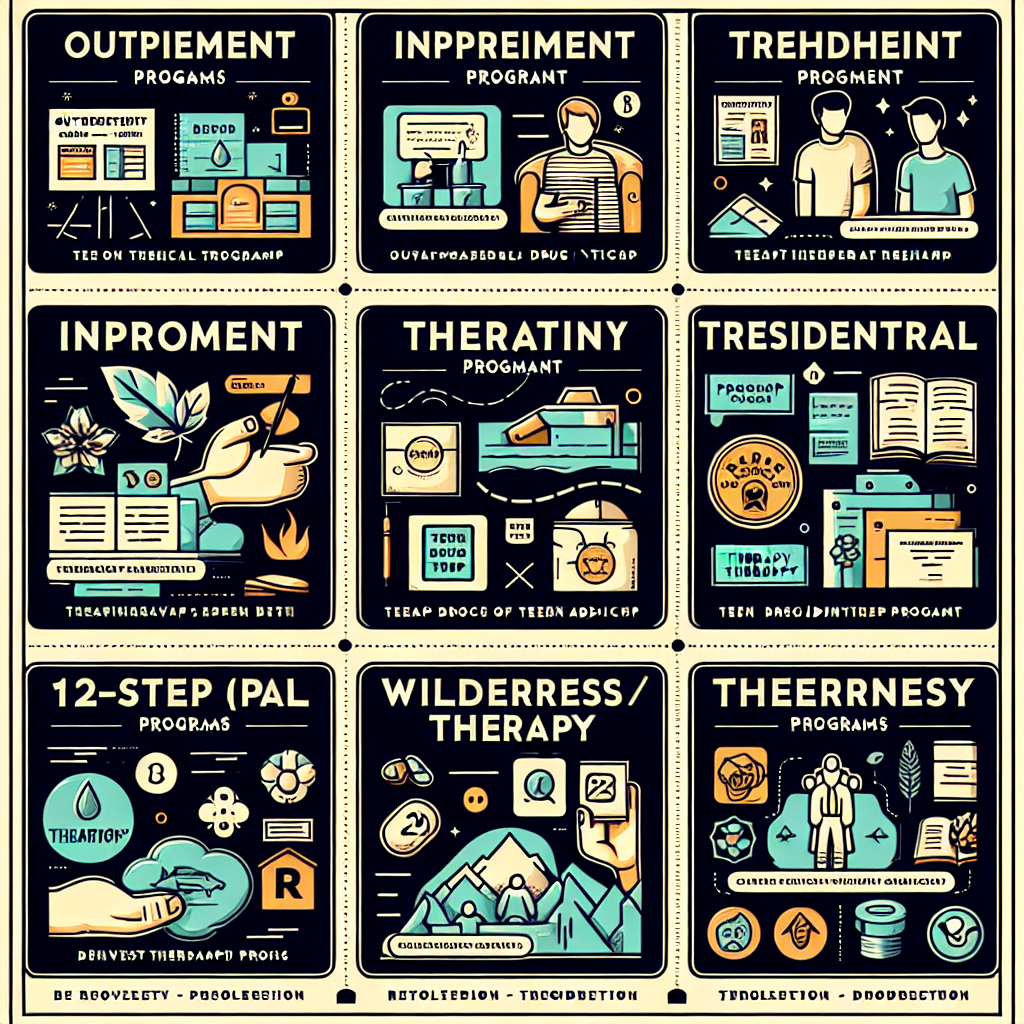-
Table of Contents
“Empowering Recovery: Tailored Rehab Solutions for Young Adults Battling Eating Disorders”
Introduction
Finding effective rehab programs for young adults with eating disorders is a critical step towards recovery and long-term health. Eating disorders, such as anorexia nervosa, bulimia nervosa, and binge-eating disorder, are complex mental health conditions that require specialized treatment tailored to the unique needs of young adults. Effective rehab programs typically offer a multidisciplinary approach, combining medical, nutritional, and psychological support to address the physical and emotional aspects of the disorder. These programs often include individual and group therapy, family involvement, and education on healthy eating habits and coping mechanisms. The goal is to provide a supportive environment where young adults can develop the skills and resilience needed to overcome their eating disorders and lead fulfilling lives. Identifying the right rehab program involves considering factors such as the program’s treatment philosophy, the qualifications of the staff, the level of personalized care, and the availability of aftercare support to ensure sustained recovery.
Identifying Key Features of Successful Rehab Programs for Young Adults with Eating Disorders
Finding effective rehab programs for young adults with eating disorders can be a daunting task, but understanding the key features of successful programs can make this journey more manageable and hopeful. The first step in identifying a suitable program is recognizing the importance of a comprehensive, individualized approach. Young adults face unique challenges and pressures, and a one-size-fits-all treatment plan is unlikely to address the nuanced needs of each individual. Therefore, a successful rehab program should offer personalized treatment plans that consider the specific circumstances, medical history, and psychological profile of the young adult.
Transitioning from the need for individualized care, it is crucial to highlight the role of a multidisciplinary team in effective rehab programs. Eating disorders are complex and often co-occur with other mental health issues such as anxiety, depression, or substance abuse. A multidisciplinary team typically includes medical doctors, psychiatrists, psychologists, nutritionists, and therapists who work collaboratively to provide holistic care. This team approach ensures that all aspects of the young adult’s health are addressed, promoting a more comprehensive recovery process.
Moreover, the integration of family involvement is another key feature of successful rehab programs. Young adults are often still closely connected to their families, and involving family members in the treatment process can provide essential support and understanding. Family therapy sessions can help to mend strained relationships, educate family members about the nature of eating disorders, and equip them with the tools to support their loved one’s recovery journey. This collaborative effort can create a more supportive home environment, which is crucial for long-term recovery.
In addition to family involvement, the incorporation of evidence-based therapies is fundamental to the success of rehab programs. Cognitive-behavioral therapy (CBT), dialectical behavior therapy (DBT), and other evidence-based approaches have been proven effective in treating eating disorders. These therapies help young adults develop healthier thought patterns, coping mechanisms, and emotional regulation skills. By focusing on evidence-based practices, rehab programs can offer treatments that are scientifically validated and tailored to the specific needs of young adults.
Furthermore, the importance of aftercare and ongoing support cannot be overstated. Recovery from an eating disorder is a long-term process, and the transition from a structured rehab environment back to everyday life can be challenging. Successful programs provide robust aftercare plans that include continued therapy, support groups, and regular check-ins to ensure that young adults remain on the path to recovery. This ongoing support helps to prevent relapse and reinforces the skills and strategies learned during treatment.
Additionally, fostering a sense of community and peer support within rehab programs can significantly enhance the recovery experience. Young adults often benefit from connecting with others who are facing similar challenges. Group therapy sessions, peer support groups, and community-building activities can create a sense of belonging and reduce feelings of isolation. This peer support can be incredibly motivating and provide a network of understanding and encouragement.
Lastly, the environment in which treatment takes place plays a vital role in the effectiveness of rehab programs. A safe, nurturing, and non-judgmental setting can make a significant difference in a young adult’s willingness to engage in treatment and their overall comfort level. Programs that prioritize creating a positive and supportive atmosphere can help young adults feel more at ease and open to the recovery process.
In conclusion, finding effective rehab programs for young adults with eating disorders involves looking for key features such as individualized care, a multidisciplinary team, family involvement, evidence-based therapies, aftercare support, peer connections, and a supportive environment. By focusing on these elements, families and young adults can find hope and inspiration in the journey toward recovery.
How to Choose the Right Rehab Program for Young Adults Struggling with Eating Disorders
Choosing the right rehab program for young adults struggling with eating disorders is a critical step towards recovery and long-term well-being. The journey to finding an effective program can be daunting, but with the right information and guidance, it becomes a manageable and hopeful process. Understanding the unique needs of young adults is essential, as they often face distinct challenges that require specialized care and support.
First and foremost, it is important to recognize that eating disorders are complex mental health conditions that necessitate a comprehensive treatment approach. Therefore, when evaluating rehab programs, it is crucial to look for those that offer a multidisciplinary team of professionals. This team should ideally include medical doctors, psychiatrists, psychologists, dietitians, and therapists who work collaboratively to address the physical, emotional, and psychological aspects of the disorder. By ensuring that the program has a well-rounded team, you can be confident that all facets of the young adult’s health will be addressed.
Another key factor to consider is the program’s treatment philosophy and approach. Evidence-based treatments, such as Cognitive Behavioral Therapy (CBT), Dialectical Behavior Therapy (DBT), and Family-Based Therapy (FBT), have been shown to be effective in treating eating disorders. Programs that incorporate these therapies are more likely to provide the structured and scientifically-supported care needed for recovery. Additionally, it is beneficial to find programs that offer individualized treatment plans, as each person’s experience with an eating disorder is unique. Tailoring the treatment to the specific needs of the young adult can significantly enhance the chances of a successful recovery.
The environment in which treatment takes place also plays a crucial role in the healing process. Young adults often thrive in settings that are supportive, nurturing, and free from judgment. When visiting potential rehab centers, pay attention to the atmosphere and the interactions between staff and patients. A positive and encouraging environment can make a substantial difference in the young adult’s willingness to engage in treatment and their overall experience.
Furthermore, the inclusion of family in the treatment process can be incredibly beneficial. Eating disorders do not only affect the individual but also their loved ones. Programs that offer family therapy sessions and educational workshops can help families understand the disorder, learn how to provide support, and work through any relational issues that may have arisen. This holistic approach ensures that the young adult has a strong support system both during and after treatment.
Aftercare and ongoing support are also vital components of an effective rehab program. Recovery from an eating disorder is a long-term process that extends beyond the initial treatment phase. Look for programs that provide robust aftercare plans, including follow-up appointments, support groups, and resources for continued therapy. These elements help maintain progress and prevent relapse, offering a safety net as the young adult transitions back to their daily life.
Lastly, it is important to consider the program’s success rates and testimonials from former patients. While no program can guarantee a cure, those with higher success rates and positive feedback from alumni can provide reassurance of their effectiveness. Personal stories of recovery can be particularly inspiring and offer hope that recovery is possible.
In conclusion, finding the right rehab program for young adults with eating disorders involves careful consideration of several factors, including the expertise of the treatment team, the use of evidence-based therapies, the treatment environment, family involvement, aftercare support, and the program’s track record. By taking these elements into account, you can make an informed decision that sets the young adult on a path towards healing and a healthier future.
Q&A
1. What are key factors to consider when choosing a rehab program for young adults with eating disorders?
– Key factors include the program’s accreditation, the qualifications of the staff, the types of therapies offered (e.g., cognitive-behavioral therapy, family-based therapy), the level of individualized care, and the availability of aftercare support.
2. How can family involvement impact the effectiveness of rehab programs for young adults with eating disorders?
– Family involvement can significantly enhance the effectiveness of rehab programs by providing emotional support, helping to address family dynamics that may contribute to the disorder, and ensuring continuity of care and support after the program ends.
Conclusion
Finding effective rehab programs for young adults with eating disorders requires a comprehensive approach that includes evidence-based treatments, individualized care plans, and a supportive environment. Programs should integrate medical, nutritional, and psychological therapies to address the multifaceted nature of eating disorders. Additionally, involving family and providing aftercare support are crucial for long-term recovery. Ensuring that the program is accredited and staffed by experienced professionals can significantly enhance the chances of successful outcomes.



